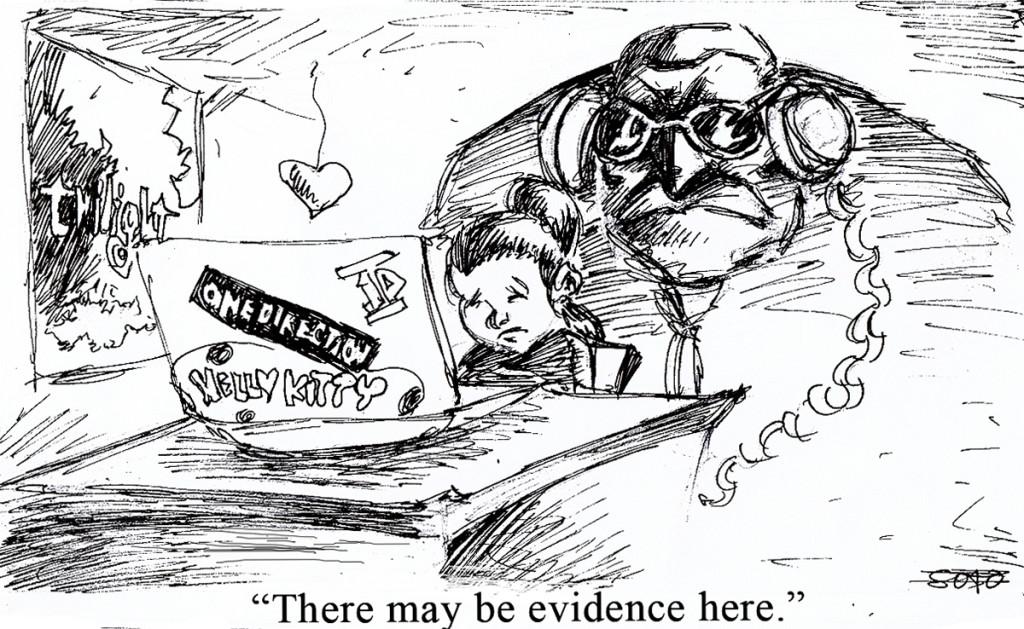Most of us are familiar with that famous line, “Big Brother is watching you,” from George Orwell’s “1984.” Unlike the book, in real life we don’t have telescreens to tell us we’re being watched. We implicitly trust the providers of our daily interfacing with various social networks, emails, text messages and phone calls.
NSA whistle-blower, and now fugitive, Edward Snowden, ripped the security blanket off of that trust forever.
After The Guardian broke the story in June, we were left to grapple with this new knowledge that the NSA’s PRISM program has been, and is still indiscriminately collecting private user data from a who’s who list of the internet’s biggest players, including Google, Facebook, Microsoft, Apple, Youtube and Yahoo. And they’re doing it using Fourth Amendment-violating trump cards.
The loophole’s the NSA and other agencies found are actually just deliberate misinterpretations of Section 215 of the Patriot Act, and Section 1881a of the FISA Amendments Act of 2008 and 2012.
The official line is that the NSA haven’t accessed direct content of emails, or cell phone calls, only the ironically more sensitive “metadata,” like internet search habits, networks of phone numbers, and their activity. But the truth is much more sinister.
On the public stage, the Obama administration hasn’t handled the scandal well. Claims by the administration routinely conflict with emerging evidence disproving them. For example, Obama’s initial response was that legal checks have prevented inappropriate access of data, however, according to a Washington Post article based on the Snowden disclosures in August, the NSA violated its own rules on data access “thousands of times a year,” many of which were “large-scale data interceptions.”
With public scrutiny going from lukewarm to incandescent as more Snowden reports go public, Senate and Congressional leaders have been pressured to change their tune regarding oversight. While it’s true NSA head Gen. Keith Alexander will step down in 2014, and there is now speculation a citizen may head the agency for the first time, many view the reform talk as Kabuki theater. Civil Liberties watchdog group the ACLU reran a Guardian piece only days ago disclaiming the Dianne Feinstein reform as “fake,” a public display to appease the masses while it’s business as usual when the cameras stop rolling.
Fortunately, not every leader or reform is viewed as skeptically. The USA Freedom Act from ex-surveillance fan turned constitutional defender Rep. Jim Sensenbrenner (R-Wis.), and Sen. Patrick Leahy (D-Vt.) is one bill the ACLU and others are getting behind publicly.
Whether or not you view Snowden as a hero or a traitor really depends less on where you lean politically, and more on your take on the net effect of his disclosures.
Like many political scandals, the truth probably lives somewhere in that ambiguous grey area between right and wrong.
Inter-agency consensus is that our security has been compromised, public trust has been injured, and with new evidence of spying on foreign leaders, we’re already seeing evidence that international relations have been damaged.
On the other hand, we’re also now aware that the NSA has our metadata, and probably more, and that they’ve been conducting secret assaults on the encryption guarding our personal information at every conceivable datahub and network on the internet, making that data vulnerable to attacks by anyone from garden variety hackers, to snooping foreign nations.
The question is, is the Snowden information forearming, impelling us all to lobby for increased transparency in agencies that make their living off of not being transparent, or is it unintentionally subversive, doing more harm than good? Snowden freely admits the reverse danger in what he’s done, but he also said he doesn’t want to live in a world where there’s no privacy. And isn’t that more dangerous?






































































